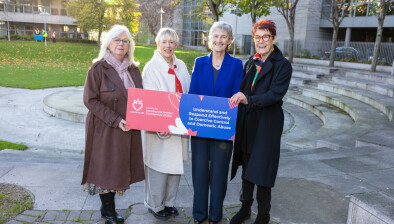Child Law Project reports highlight care system in crisis

The Child Law Project has published its final tranche of reports under a three-year government grant, which highlight the challenge of providing appropriate care placements, allocated social workers and support services for children in care.
The latest volume comprises 70 reports — 67 from the District Court, one each from the Supreme Court, Circuit Court and High Court — attended by Child Law Project reporters over the first half of 2024.
The shortage of appropriate care placements — in foster care, residential care and special care — dominates the volume.
It includes discussion in the Supreme Court, High Court and District Court on the ongoing lack of special care beds. Multiple judges said they are “in despair” at the situation, with one High Court judge describing the lack of special care beds as “a tsunami about to reach shore and nothing is being done”.
A number of vulnerable children are under a special care order but no special care bed is available to them. Issues arising from the Project’s reports include overlap and confusion between children facing criminal charges and requiring special care or other residential care, and the lack of step-down and high support care units.
Dr Maria Corbett, CEO of the Child Law Project, said: “The lack of suitable care placements is having a domino effect that risks collapsing the care system. The knock-on effects of a lack of appropriate placements are compounding existing difficulties for children and staff and so we fear the system has begun to unravel.
“The knock-on effects of a dearth of placements include the CFA delaying applications to take children into care and continuing to use unregulated or unsuitable emergency placements.
“Many children are experiencing multiple placement moves, often over a short period of time, despite stability being a known key ingredient for a successful outcome to care. Urgent action across government is needed to halt this spiral of poor practice and to build trust in the care system.”
She continued: “Of particular concern in this volume are a number of cases where there was concern that the child was being sexually or criminally exploited and the level of support in their current care placement was not sufficient to stabilise them and address these risks.
“For some, as their case returned to court for review, the situation deteriorated and became very bleak, with staff scrambling to keep the child safe.”
Dr Carol Coulter, executive director of the Child Law Project, said: “This volume, like the preceding 28 volumes published by the Child Law Project since 2013, demonstrates the crucial role of the courts in protecting the rights of children in State care, while also ensuring that the rights of vulnerable parents are upheld and that the door to reunification is not closed.
“Although the District Court is described as a court of summary jurisdiction, in child care cases District Court judges pay close and empathetic attention, often devoting days to hearings, to the needs of some of the most vulnerable in our society, children at risk of neglect and harm.”







